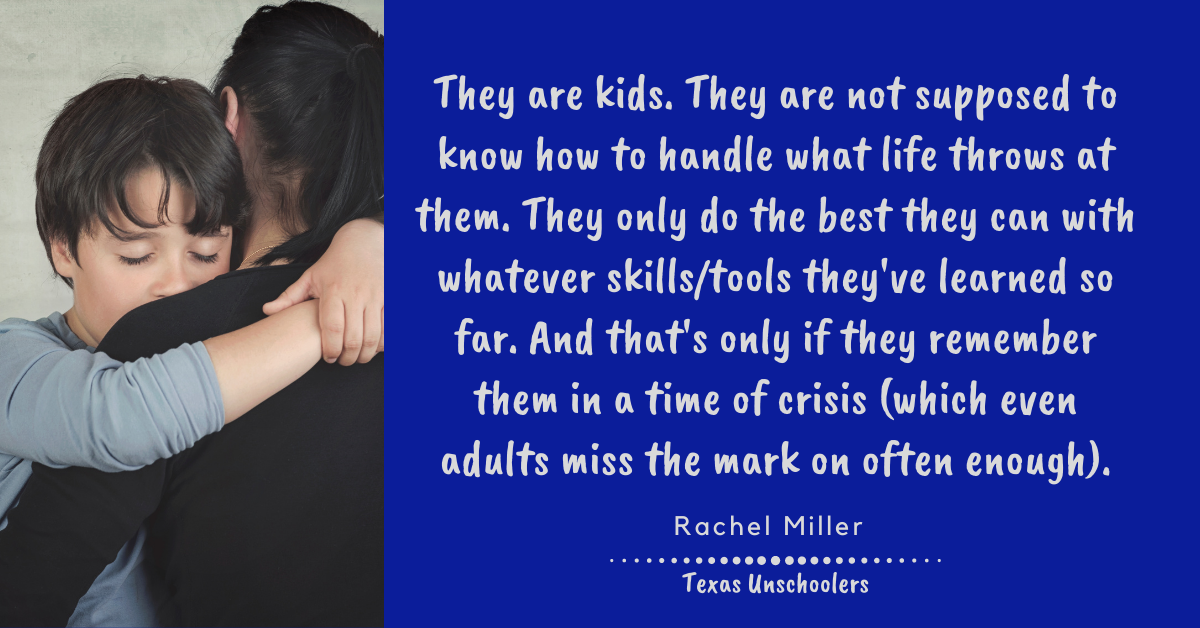For those of us who have a child whose sleep schedule has shifted to being awake all night and asleep through most of the day (this is especially prolific in teens*) – it may feel like we’re disconnected from them. Especially if, before this shift happened, we were able to regularly and consistently connect & hang out with them during the day.
It helps to think of new ways that you can gather and to recognize the “unofficial” ways you may already be naturally connecting. For our son, now 17, he’s spent much of his life as a night person – so we’ve had a lot of time to settle into various routines that allowed for the most connection possible.
I sort of have a morning routine where I come downstairs, let the dogs out, start coffee, unload/reload the dishwasher, make food for dogs, and other random kitchen/downstairs stuff. 17yo would come down and wander around the kitchen and we’d talk about what he’d been doing overnight. He’ll show me YouTube videos (our main TV can be seen from the kitchen). Sometimes he’d set up his laptop to stream to the TV so I could see what he was doing.
It’s a common joke where the first time I see him all day, I say, “What time is it?” And what that means is “where are you in your day?” so he’ll answer with “Just woke up”, “About to go to bed.”, “taking a break for ‘lunch’ and then…”, etc.

Lately, the temperatures have dropped, so we’ve been taking the dogs for a walk around the neighborhood. This morning we talked about a new League of Legends character that was released and how he feels about playing her. Some new games that are going to be coming out over the next few weeks, how he’s budgeted for those, and what he’s looking forward to. Spelunky 2 is a newer version of a game we’ve loved to play as a family so we discussed purchasing a bundle if it becomes available.
He asked me about the book I’m currently reading which led to a discussion about forensic accounting and blood diamonds. He was able to connect that with another game he’s played and the discussion moved to Sierra Leone, Northern Africa, child soldiers, and the difference between private military contractors and mercenaries.
Don’t be so quick to ban “tech” during these times. We often use our phones to look up/clarify the things we’re discussing. (This morning, it was to see on a map exactly where Sierra Leone is located in Africa.)
Since the tween/teen years hit – we almost never eat dinner at the dining room table. We’ll watch TV together, take our food to desks and game, etc. All those “studies” about how sitting around the dinner table is necessary are based on: 1. schooled students and 2. parents who don’t know how to connect with their kids. If we eat while we’re all gaming or watching tv together or whatever – then the connection is happening.
-Rachel
Learn more about Rachel on our Contributors page.
Image: Picture is of our two dogs, a brown & white King Charles Spaniel and a grey/silver Schnauzer, walking on leashes ahead of us. (currently our kids don’t want their pics posted to social media, so you get the dogs. ![]() )
)
* For more about how biology impacts when teens sleep, you can read this article (which includes more links): Your Teen Needs More Sleep. However, please keep in mind that this article & the resources are all focused on schooled teens and how to help them work around, adjust, or at worst ignore their nature in effort to function within a paradigm set up against how their body functions. Unschooling makes that unnecessary.


